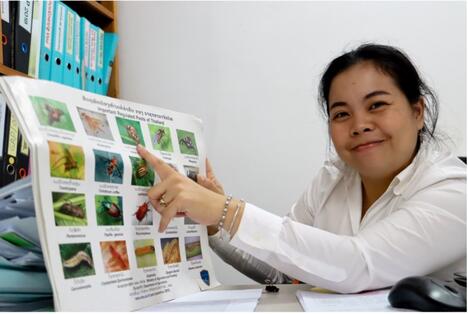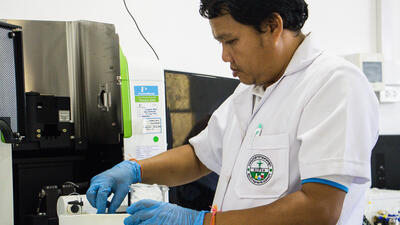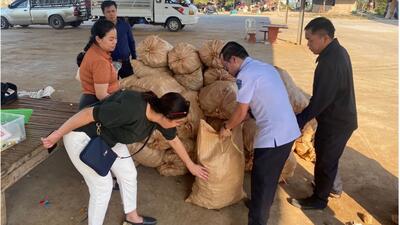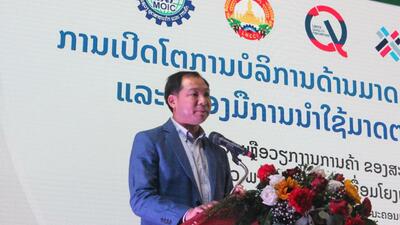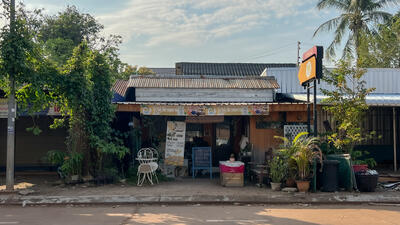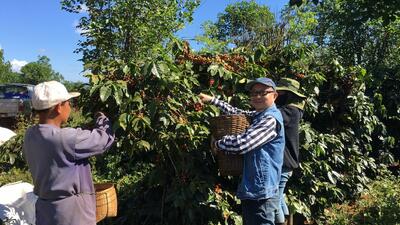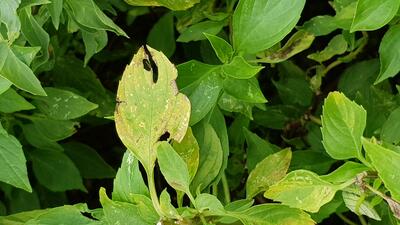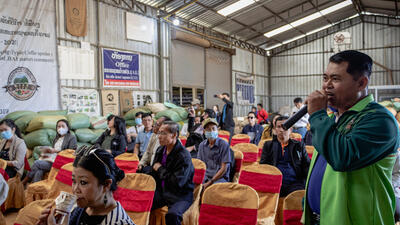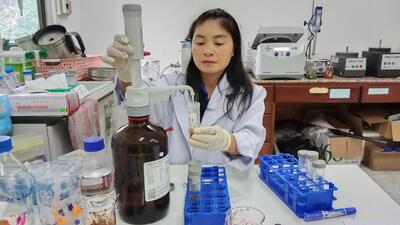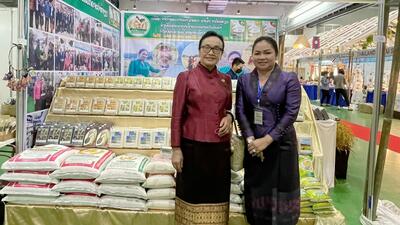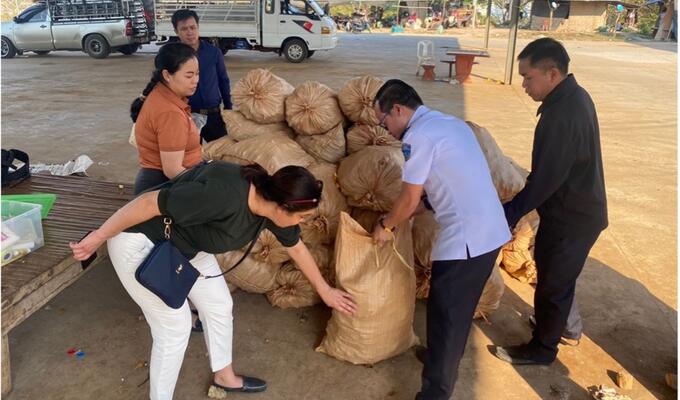
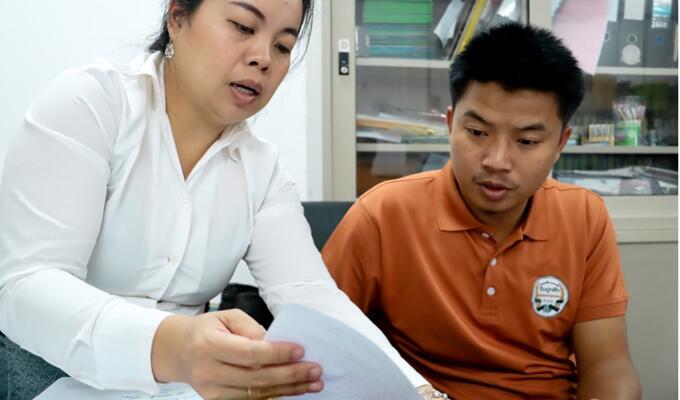
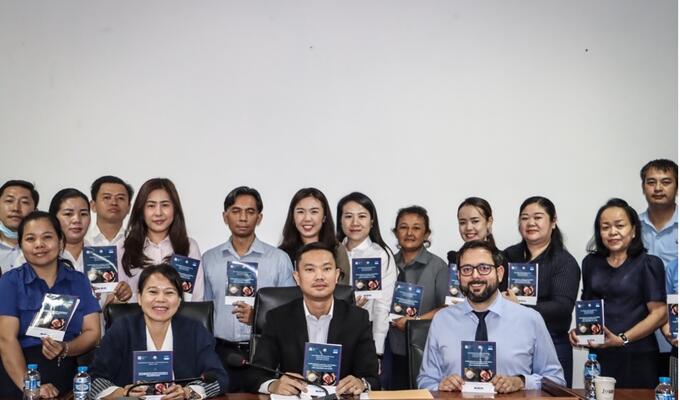
Lao woman leads local agriculture to international market
Top plant quarantine officer leads the way for Lao farms to meet global agriculture trade standards
On a peaceful Friday afternoon in Vientiane, the Laos capital, Sounaly Sommany is helping her colleagues at the Plant Quarantine Division of the Ministry of Agriculture and Forestry (MAF) to better understand international safety standards.
After graduating from Khon Kaen University in Thailand with a degree in entomology, Sommany moved back to her hometown in Lao People’s Democratic Republic. She started working with the ministry’s Department of Agriculture (DOA).
She began as an officer in charge of the importation of plants and agricultural products. A decade later, she became the Deputy Director of the Plant Quarantine Division – one of few women to hold this position.
Sommany now has a wealth of responsibilities including leading international trade and market negotiations, conducting research, and coordinating with provincial and district agriculture offices regarding international regulations. She helps to facilitate small business imports and exports.
Although she enjoys her new role, she faces some challenges including inadequate training, limited capacity, and limited resources for her team.
Gaining partners’ trust is imperative if small agricultural businesses want to participate in the international market. But Sommany says, ‘Although we’re a central organization, we lack capacity-building opportunities for our team and limited educational materials and resources to share with the provinces and districts.’
In February 2023, Sommany participated in a mission organised by the Systematic Mechanism for Safer Trade (SYMST) project. The mission aimed to collect samples at border checkpoints according to International Standards for Phytosanitary Measures (ISPM), establish areas of low pest prevalence (ALPP), and inspect quarantine conditions at border checkpoints. This mission also included training on ISPM number 31 for specific products (basil and chili) based on EU import requirements in Vientiane and the province of Champasak.
What is ISPM?
International Standards for Phytosanitary Measures are standards adopted by the Commission on Phytosanitary Measures, the governing body of the International Plant Protection Convention. ISPM objectives include improving global food security, preserving sustainable agriculture, protecting the environment, forests, and biodiversity, as well as facilitating economic and trade growth. .
‘As a result of attending this mission with the international expert, I gained an understanding of ISPM. As I was travelling to the border posts, I observed the challenges faced by our provincial officers,’ Sommany recounts. ‘I am now more confident in inspecting and assessing samples.’
Many other Lao quarantine officials have been trained on EU plant health regimes and import requirements. These officials were trained in improved sampling methods to ensure EU import compliance, export controls and inspection procedures. They were also shown how to set up and maintain pest-free production sites.
Creating synergies between ITC projects
Sommany participates in and benefits from synergies created through multiple ITC projects in Lao People’s Democratic Republic, including the ARISE Plus project and the SYMST project (both funded by the European Union).
Sommany is the Department of Agriculture’s focus for the National Enquiry Points for Sanitary and Phytosanitary Measures (SPS) and Technical Barriers to Trade (TBT). In November 2022, she received training on how to use the WTO's new ePing SPS & TBT platform through the ARISE Plus project.
What lies ahead?
As the Deputy Director of her division, Sommany serves as an excellent role model for her colleagues. She hopes to apply the knowledge and techniques she acquired from the two projects to provide guidance and advice to her team.
About the project
The Systematic Mechanism for Safer Trade (SYMST) project is funded by the European Union and strengthens the regulatory framework for control system for use and traceability of plant health and pesticides in the fruit and vegetable sectors and other plant products. The ITC project develops a systematic approach to assist the governments and private sector in two target countries, Lao People’s Democratic Republic and Viet Nam.




